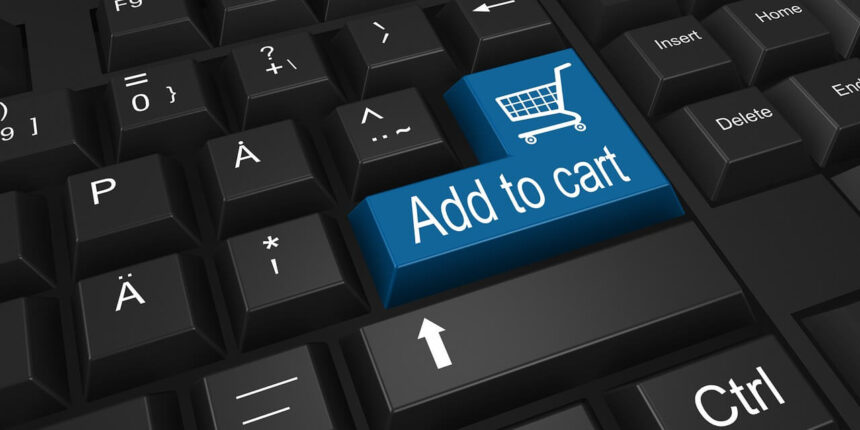This article will look at some tips for a safer online shopping experience.It’s incredible how much we now rely on the internet to find almost anything. But this convenience has a dark side: hackers and identity thieves can get their hands on your credit card numbers and personal information just by clicking a few buttons. And once that happens, it might be too late for you to protect yourself from financial woes or even worse.
Here are some tips to keep in mind when shopping online so you don’t become another victim of these cyber-criminals:
Tips for a safer online shopping experience
The following tips can help you enjoy a safer online shopping experience:
1. Check if a site’s connection is secure.
All the sites in our blog are secured by HTTPS. You can see this in your browser when you type in the address- there should be a lock next to the site name. If there is no lock, someone may be trying to steal your information.
Not only should the site’s connection be secure, but also the site’s logo. You can check that by looking at the address bar of your browser window when you are on the site. It is NOT secure if it says “HTTP” in red next to the web address.
2. Use Secure online payment platforms.
If you make payments online using your credit card, ensure the site offers a secure payment platform. Most of these platforms are provided by reputable companies, such as PayPal or Amazon.
For added security, use two-factor authentication on these platforms. The site will require your mobile phone number, username, and password, making it more difficult for cyber thieves to take over your account.
While credit cards are the most common way of paying online, alternative payment options can also help to protect your data. Services like Google Wallet, linked directly with your bank account, offer protection against fraud because you have to verify each transaction on the site and don’t need to give out your banking information.
3. Avoid shopping while logged in on public Wi-Fi networks.
Many people enjoy shopping while on the go, and who wouldn’t want to save a few dollars? But many people also do their online shopping from public Wi-Fi networks such as those in cafes or airports. If you do that, consider your information not just stolen but out in the open for anyone to see! It’s no secret that hackers can easily access public Internet connections and view everything you do on them.
To avoid this, you should always log out of sites using public or unsecured networks. You could even use a private browsing window in your browser to ensure that no information is saved while browsing on public Wi-Fi.
4. Always use a strong password on e-commerce websites.
Never use the same password for more than one account; always use a strong password with both letters and numbers. A good rule of thumb is to have your passwords be at least nine characters long. If unsure what makes a strong password, try using an online generator.
5. Use your own devices when shopping online.
One of the easiest ways hackers get your information is by installing keyloggers on your devices. This way, even if you don’t buy anything from an infected site, they will still have access to all your info and credit card numbers.
To avoid this, only shop online using your laptop or phone, not your family or friends. If you don’t have access to your devices, visiting a store in person is best.
6. Check your bank statements regularly.
This might not be a protection method against hackers, but it is a way to check if anything suspicious has been happening with your information. If you notice any unknown purchases or withdrawals from your accounts, then immediately contact the bank and have them review the info on their end for potential fraud.
7. Check seller reputation
Another tip for a safer online shopping experience is to check the seller’s reputation. There are a few ways to do this, but one of the simplest is to check customer reviews.
You can also look for customer service contact information on the site. If it’s difficult to find or there is no customer service number listed, that could be a red flag.
8. Keep your online activity private.
When shopping online, it’s essential to keep your activity private. This means not sharing your personal information with anyone, even if they claim to be from the company you are buying from.
If you are contacted by someone asking for your information, do not respond. Instead, contact the company yourself to verify that the request is legitimate.
9. Check statements regularly
If you are shopping online, it is important to check your statements regularly. This way, you can catch any fraudulent charges quickly and report them to the proper authorities.
You should also keep an eye out for any strange or unfamiliar transactions, even if they are small amounts. These could be signs that your information has been stolen and someone is testing to see if they can use your card.
10. Use mobile apps from the sellers
When shopping online, one of the best ways to protect your information is to use the mobile app from the seller. This way, you can be sure that your information is going directly to the company and not being intercepted by a third party.
When using a mobile app, you should also ensure that it is up to date and that you use a secure connection. You can usually find this information in the settings of the app.
FAQ
The following are the top frequently asked questions related to a safer online shopping experience:
How do you stay safe online shopping?
You can do a few things to stay safe when shopping online: only shop on secure websites, don’t use public Wi-Fi, use a strong password, check seller reputation, and keep your activity private.
What is secure online shopping?
Secure online shopping is when you take precautions to protect your information while shopping online. This includes only shopping on secure websites, using a strong password, and keeping your activity private.
Why is online shopping security important?
Online shopping security is essential because it helps to protect your personal and financial information. If you are not careful, hackers could gain access to your info and use it to steal your identity or make fraudulent purchases.
Safer online shopping experience conclusion
In today’s world, many people are enjoying the convenience of shopping online. But when you give out your information to e-commerce sites, it is up to you to protect yourself! Just use these quick tips to stay safe while shopping online, and you will be fine.
Happy online shopping.













